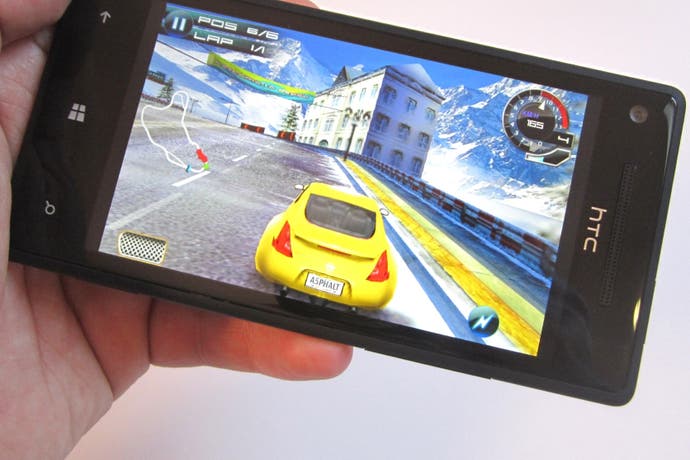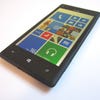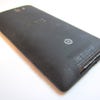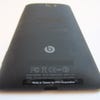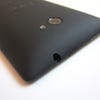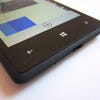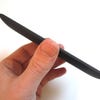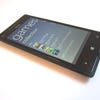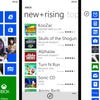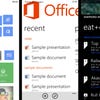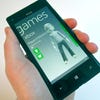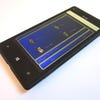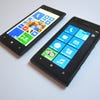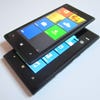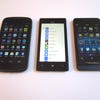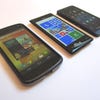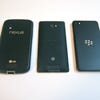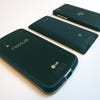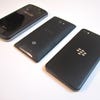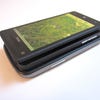HTC 8X review
Can Windows Phone 8 offer a viable alternative to iOS and Android, and how well does it integrate with Xbox Live? Digital Foundry finds out.
If you're growing weary with iOS and can't abide Android's fragmented nature, alternatives are thin on the ground. The BlackBerry standard offers a viable choice for business-focused use, but even that is slowly morphing into something more akin to a traditional smartphone, with the recently-launched BlackBerry Z10 ditching the keys and doing its best impression of Apple's iPhone.
It therefore falls to Microsoft's Windows Phone platform to give Google and Apple a bit of competition, although since its initial launch in 2010 it has struggled to wrestle away a significant amount of market share. The newly-released Windows Phone 8 update is a concerted effort to rectify that; Microsoft has lifted hardware constraints on manufacturers, upped the screen resolution and convinced hardware partners - such as HTC, Nokia and Samsung - to join the party. The result is definitely an improvement on what has gone before, but after sampling the lead WP8 handset - HTC's 8X - we're not entirely convinced that it will be giving Android and iOS any sleepless nights.
Before we get too bogged down in what WP8 can and can't do, it's worth taking a look at the hardware that's on offer here. The HTC 8X is a fairly typical example of a modern smartphone; it's a relatively featureless slab of polycarbonate dominated on one side by a 4.3-inch 720p Super LCD 2 capacitive touch screen, while the rear of the device has a rubber-like coating to increase grip.
The back of the phone curves towards the edges making it comfortable to hold, while the perimeter of the screen employs a similar technique - all of which makes the handset avoid the 'boxy' nature of rival devices. Our only genuine complaint from a physical perspective is the nature of the power, volume and camera buttons which run along the edges of the phone; they sit too flush with the casing and are frustratingly hard to locate in a hurry.
If you've used a Windows Phone device in the past, the boost in screen resolution is immediately apparent. Although the Metro UI isn't the most graphically intense smartphone OS, the increase in clarity makes the live tile system really spring to life; details such as contact photos and other images contain added detail, and all the usual elements - such as photos, web pages and videos - benefit in a big way. Granted, the 1280x720 resolution is hardly state-of-the-art these days, but if you've already pledged your allegiance to Windows Phone, you'll appreciate those additional pixels. That Super LCD 2 panel is also worthy of praise - it's very bright and offers sumptuous colour reproduction.
WP8 might not look all that different to WP7 on the surface, but under the bonnet it's a different beast altogether; Microsoft's engineers have ripped out the Windows CE-based architecture which was present in version 7 and installed one based on the Windows NT kernel, which in theory allows developers to easily port applications from Windows 8.
"On the surface this new OS looks very similar to WP7, but the old WinCE underpinnings are stripped out in favour of the more modern Windows NT kernel."
Multitasking is supported, allowing you to freeze applications and return to them without having to start them up from scratch and you've also got much more control over the appearance of your home screen tiles, with the ability to shrink and enlarge them. This essentially means that if you wanted to, you could shrink all the tiles down and have an iOS-style grid arrangement, but this of course means you miss out on the "live" element of the Metro UI, where visual information - such as contact photos - is displayed on the tile itself.
When you're competing with two smartphone ecosystems like Android and iOS - both of which have thousands of apps and games as well as the long-term support of hundreds of developers and publishers - it's predictably going to be quite difficult to grow an entirely new storefront. Microsoft has certainly discovered this fact, as the rather sparse nature of the Windows Phone Market attests. The usual suspects are present and correct - Facebook, Netflix, WhatsApp, Skype, Twitter - but the depth and variety so prevalent in Google and Apple's stores is noticeably absent.
The same story applies to games. Angry Birds, Final Fantasy, Where's My Perry? and Sonic CD are available, but there's no Temple Run, no Super Hexagon and no Jetpack Joyride. The titles on offer are of quite a low standard when compared to what's currently hitting the iPhone and iPad, which begs the question: in today's download-centric world, where app stores mean the difference between success and failure, is there really any chance of invested smartphone fans switching from their current platform to Windows Phone? It's unlikely, unless they happen to be particularly enamoured with the hardware, or the clean nature of the Metro UI.
"The Xbox Live branding offers up the prospect of some serious gaming potential but the sad fact is that right now the range of titles on offer is very poor compared to the iOS and Android line-up."
One element which WP8 does have in its favour when it comes to games is the ability to connect with Xbox Live accounts. Once you're signed in you can view your achievements and look at what your friends are playing. There are also some games available which feature connectivity with your Xbox Live account, although it's worth remembering that the games themselves are no better than those on any other smartphone. We dread to think how many punters have picked up a Windows Phone device expecting it to play Gears of War purely on the strength of that enticing "Xbox Live" logo on the home screen. The foundations are there for sure, but the dream of having Xbox on your phone is still some way away.
It's a shame that there aren't more games to take advantage of the HTC 8X's power, because nestled within that polycarbonate casing is a formidable set of specifications. The Qualcomm Snapdragon S4 SoC is backed up by 1GB of RAM, which is a marked improvement over the previous limits imposed by Microsoft on Windows Phone 7 handsets (single-core tech with just 512MB of RAM was the standard). Benchmarked with AnTuTu, the HTC 8X scores 11639 - not too shabby at all. The Sunspider web test offers up a score of 934, which compares very favourably indeed with the best Android devices out there. Of course, it's difficult - and possibly pointless - to directly compare the performance of this handset with phones running an entirely different OS, but it's worth pointing out that the 8X comfortably blows away previous Windows Phone models.
The phone is packed with 16GB of internal storage - pretty standard for flagship smartphones these days - but there's no way of adding in more space with MicroSD cards. This is a choice on HTC's part rather than a shortcoming of WP8; the additional of removable memory is another of the many improvements Microsoft has introduced in this update. A 1800mAh power cell means the HTC 8X is up to the task of lasting a full day before needing a charge - not an amazing feat by any means, but a prime consideration for most smartphone users. Finally, the 8-megapixel camera is in line with the ones found on HTC's Android range, offering 1080p video recording and excellent image capture. The 8X comes with its own dedicated hardware button for taking snaps - something we wish all phones would include.
"Windows Phone 8 is a fine OS and the HTC 8X is a great phone, but with the competing platforms so established, it's difficult to view this new offering as anything other than a rank outsider."
HTC 8X: The Digital Foundry Verdict
You've got to feel for Microsoft. WP8 is a fine operating system with loads of good ideas and an intuitive interface, which even the most technologically illiterate individual can navigate, but you can't help but feel that it's come at completely the wrong time. Had Microsoft launched the OS before Android took root and during the iPhone's early ascendancy, it could be fighting for the top position now. As it stands, WP8 feels pleasant enough to use and boasts a simplicity which is genuinely appealing - especially on a device which often needs to be used quickly and in short bursts - but at this stage in the game it can't be viewed as anything but a rank outsider.
You've also got to spare some sympathy for HTC; the Taiwanese manufacturer was once the darling of the Android scene and was even selected by Google as the company to create its first flagship phone, the Nexus One. However, the rise of Samsung has bumped HTC down the pecking order and it's easy to see why the firm views Windows Phone as a potential return to former glories. Sadly, despite the attractive design of the HTC 8X, its popularity is going to be limited by the small nature of the Windows Phone market, and the presence of Nokia in the sector - surely the standard-bearer for the platform and likely to be the first choice of those who decide to make the switch from iOS, Android and BlackBerry.
Thanks to Vodafone for supplying the handset used in this review.
